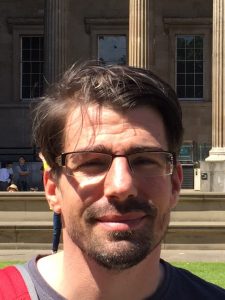
This week, doctoral student Philippe Panizzon tells us a little about what it’s like to study modern languages at Oxford at post-graduate degree level.
During my undergraduate studies at the University of Oxford I opted to study Francophone Literatures whilst also specializing in the works of André Gide and Marguerite Duras whose literary output engages with French colonialism. In my Master of Studies at the University of Oxford I pursued my interest in Francophone Literatures further, focusing on canonical authors from North Africa such as Kateb Yacine and Assia Djebar. During my Master of Studies I also familiarised myself with relevant literary theory and criticism, such as feminist and queer theory, which also acted as preparation for my D.Phil. The good thing about the University of Oxford is that as a graduate student you can discuss your research interests with both established academics and among other graduate students. Thinking through my project with members of the French sub-faculty provided varying perspectives on the subject and stimulated further thinking on the topic. Furthermore, the French sub-faculty, with its close links to the Maison Française in Oxford, regularly welcomes scholars in French from other universities (either from UK or abroad). This provides the opportunity to get acquainted with other academic traditions beyond UK and engage with and follow the latest cultural and political trends in France and the Francophonie.
My D.Phil. project, which is fully funded by the St Anne’s College – Faculty of Medieval and Modern Languages scholarship, analyses the discourse of homosexuality which takes shape during North Africa’s decolonization and independence, with particular reference to the works of North African authors Jean Sénac, Abdellah Taïa and Rachid O.. I aim to discover to what extent these authors respond to French metropolitan queer writers, whose implicit involvement with the colonialist project inflects their work with imperialism and racism. To what extent are these authors more ambiguous or critical of French neo-colonial rule? Does Western queer theory do justice to writings by North African authors embedded within Arab/Muslim cultures? I benefit from being supervised by Professor Jane Hiddleston whose work and research specialises in Francophone Literatures, Postcolonial theory and Deconstruction. Thanks to these regular interactions with my supervisor my project has gained more precision and my thoughts are constantly pushed to the limits.
Despite having nearly 700 years of tradition, the University of Oxford has been open to my research interest in queer writers and queer theory. Oxford has an active research community studying feminist and queer studies and the Faculty of Medieval and Modern Languages has some great specialists in these areas. While doing the D.Phil., we also get training for teaching undergraduates, while the countless courses offered by the Oxford Research Centre in the Humanities (Torch) have prepared me for the job-market. Graduate research becomes a well-rounded experience, rooted in scholarship but decidedly not walled off from the “real world”.
